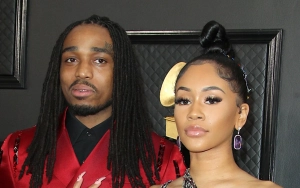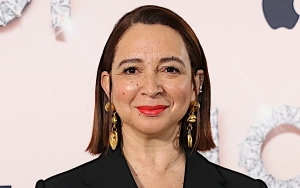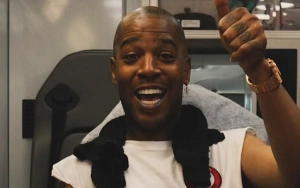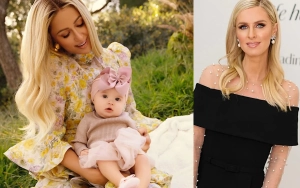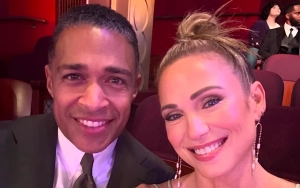District Judge William H. Pauley III denies two motions requesting a summary judgment in the case, meaning a jury is now set to try the case.
- May 18, 2018
AceShowbiz - Drake's bid to sue a music publisher for using his name and likeness without authorization looks to be heading to trial following a ruling by a New York judge. The "Hotline Bling" rapper is suing publisher and management company Hebrew Hustle and its founder Stephen Hacker over the use of a picture of him alongside Lil Wayne and Birdman on the firm's website and a line in Hacker's online biography that claimed the manager and his clients had "a heavy hand" in the creation of Drake's music.
According to Billboard magazine, on Tuesday, May 15 District Judge William H. Pauley III denied two motions requesting a summary judgment in the case, one from the hip-hop star and one from the defendant, meaning a jury is now set to try the case.
Drake's complaints include false endorsement, violation of his publicity rights and unfair competition. He wanted a summary judgment on his publicity rights claims, while the defendants wanted all the claims to be ruled on by a judge. Hacker's biography also claimed his clients had worked with Eminem, Jay-Z, Kanye West, Lil Wayne and Nicki Minaj.
The complaint is a countersuit stemming from a case brought by Hebrew Hustle executives and the heirs of jazz musician Jimmy Smith over the use of a clip from spoken word recording of Jimmy on Drake's 2013 hit "Pound Cake/Paris Morton Music 2". The Canadian star and his label Cash Money Records won that case on fair use grounds last year, although it is heading to appeal.
In their attempt to block a full trial, lawyers for Hebrew executives and Hacker had argued that Drake's complaints shouldn't head to trial as he did not claim to be domiciled in California, where the case is being tried. Judge Pauley denied their motion, stating it was a matter that should be decided at trial, alongside whether the biography amounted to false endorsement.
In denying Drake's motion, Pauley ruled that although the musician had established the defendants used his image and identity without consent, questions of whether they commercially benefited from their apparent association with him should be a matter for a jury.




